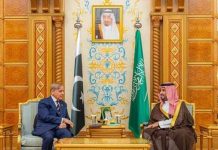Dr. Muhammad Akram Zaheer
The term populism is a political ideology that prioritizes the needs and interests of the common people over those of the elite or the establishment. Populist movements typically focus on issues such as economic inequality, political corruption, and social injustice, and often reject the political establishment in favor of more direct democracy. Populism can manifest in various ways across the political spectrum, and may be associated with authoritarianism, nationalism, and a disregard for the rule of law. Populist leaders may appeal to emotions rather than reasoned debate and may be willing to violate democratic norms to maintain power.
Pakistan has a history of populism in its politics, with populist leaders appealing to the common people by positioning themselves as champions of their needs and interests and criticizing the elites. Imran Khan’s personal charisma and celebrity status have played a significant role in his success. Prior to entering politics, Khan was a well-known cricket player, and his achievements in the sport made him a household name in Pakistan. This gave him a platform from which to launch his political career, and his popularity with the masses has only grown since then. Khan is known for his eloquence and ability to connect with people, which has helped him to win the hearts and minds of the Pakistani people. Imran Khan’s rise to power as the leader of the Pakistan Tehreek-e-Insaf (PTI) party in the 2018 general election is one example of populism in Pakistan. The PTI campaigned on an anti-corruption platform, vowing to fight against the country’s entrenched political and economic elites and provide social services to the poor. However, while populism can drive positive change, it can also be associated with authoritarianism and disregard for democratic norms, as some have criticized the PTI’s approach to governance, including its use of military courts and crackdowns on political opposition and media freedom.
Another key factor that has made Imran Khan a champion of populism is his focus on addressing the needs of the common people. Throughout his political career, Khan has been a vocal advocate for social justice, and he has campaigned for better education, healthcare, and job opportunities for ordinary Pakistanis. He has also spoken out against corruption and political nepotism, which are issues that have long plagued Pakistani society. By positioning himself as a champion of the people, Khan has been able to win over the support of the masses and build a broad-based coalition of supporters.
His focus on social justice, Imran Khan has also been a vocal critic of Western imperialism and globalization. He has argued that Western powers have exploited developing countries like Pakistan for their own benefit, and that globalization has led to the erosion of traditional values and cultures. This stance has resonated with many Pakistanis who feel that their country has been neglected and marginalized by the global community. Khan’s anti-imperialist rhetoric has helped to cement his position as a populist leader who is willing to take on powerful interests on behalf of the common people.
Imran’s vision of nationalism and Islamic populism garnered support from the military. He spoke passionately in both Urdu and English and urged the people to dream of a Pakistan where both the rich and the poor were treated equally. He envisioned a country that would not be subservient to Western powers and referred to Medina as a just society. He used the term “jihad” to encourage citizens to pay taxes and vowed to fight for Pakistan’s sovereignty. He challenged the United States in the war on terror and pledged to make Pakistan economically strong by holding corrupt politicians accountable, taxing the wealthy, and establishing a welfare state
Imran Khan came to power on an anti-corruption and pro-reform platform, positioning himself as a champion of the people and opponent of the traditional political elite. However, his leadership has also been criticized for its authoritarian tendencies, including crackdowns on the media and political opposition, leading many to associate his politics with populism. Despite resonating with marginalized Pakistanis, it is crucial to ensure his leadership does not undermine democratic institutions or exclude certain groups. The political leadership in Pakistan is influenced by personal charisma, party loyalty, and institutional factors such as the military’s role in politics. While there have been successful leaders who made progress on democracy and development, controversies persist.
According to a survey titled “Public Pulse Report,” Imran Khan was the most highly rated politician in Pakistan, with a positive rating from 61% of the population and a negative rating from 37%. Nawaz Sharif and Bilawal Bhutto shared the second position, with a positive rating of 36%. The survey was conducted in February 2023 and covered 2,000 respondents from urban and rural areas in all four provinces of Pakistan.
Nawaz Sharif received a negative rating from 59% of the respondents, while Bilawal Bhutto received a negative rating from 57%. Maryam Nawaz, Asif Ali Zardari, and MaulanaFazlurRehman all received negative ratings of 61%, 67%, and 57%, respectively. Prime Minister Shehbaz Sharif received a negative rating from 65% of the respondents.
Imran Khan continues to cultivate his image as a champion of the people, focusing on access to education and healthcare, social justice, and empowering the marginalized. His government had taken steps to address corruption and inefficiency in the public sector, but his policies and actions had also faced criticism for being undemocratic and closely tied to the military establishment. While Khan enjoys some degree of popular support in Pakistan, the long-term implications of his populist approach remain to be seen.
Imran’s arrest and the government’s actions may be seen as an attempt to rein in Imran Khan’s populism. Many observers saw the arrest as part of a broader pattern of repression and intimidation of opposition voices by the Sharif government, which had been accused of using state institutions to suppress dissent and criticism. Imran Khan’s arrest is a pivotal moment in Pakistani politics that reflected the growing polarization and repression of opposition voices in the country. The arrest serves as a reminder of the fragility of democracy and the importance of protecting freedom of speech and expression, even in the face of political opposition and criticism.

















